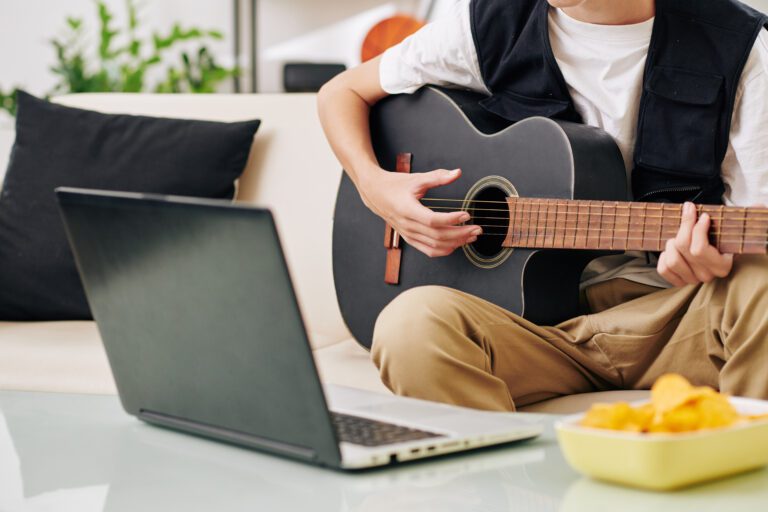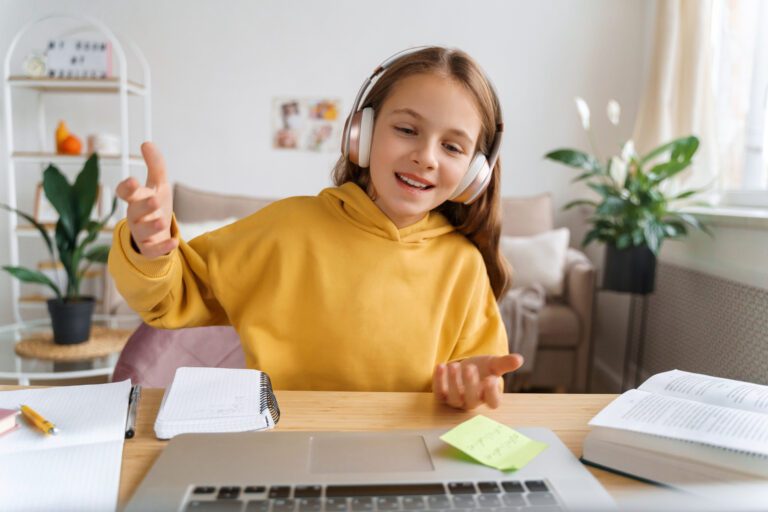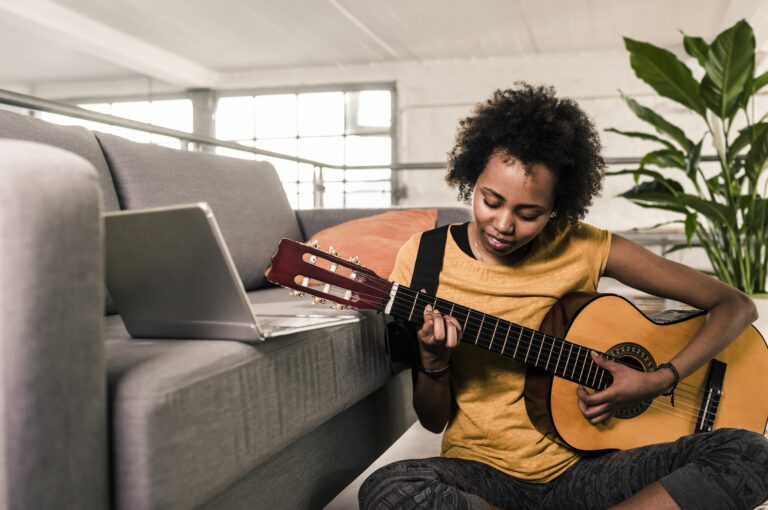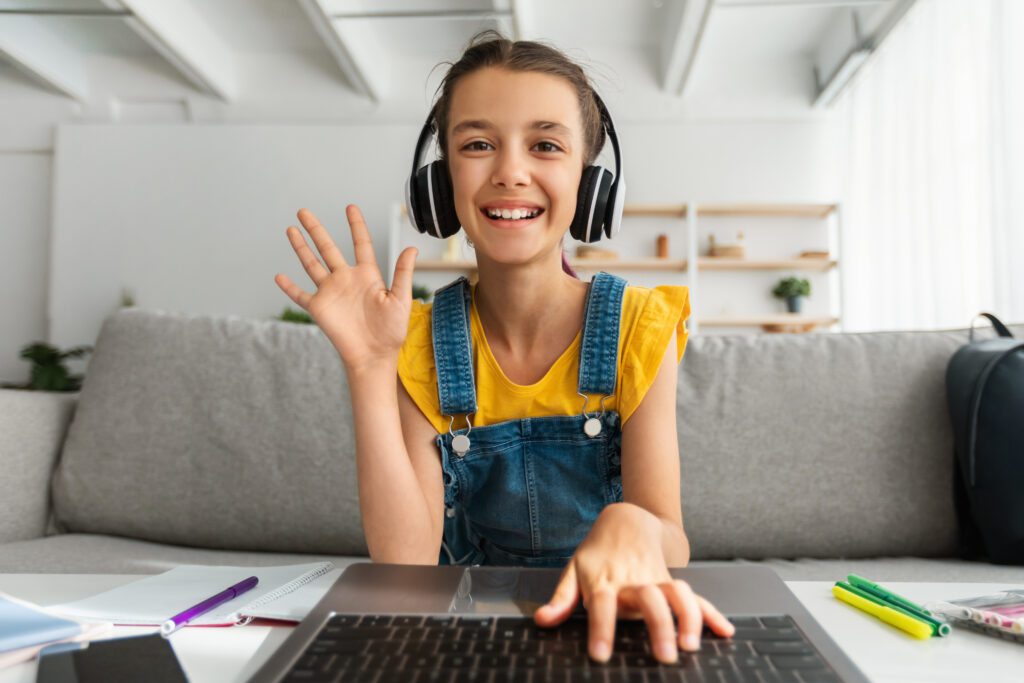How Technology is Enhancing Virtual Music Classes in 2025
Gone are the days when music lessons meant traveling to a physical studio every week. In today’s digital world, technology is enhancing virtual music classes, making them more accessible, personalized, and effective than ever before.
Whether you’re a beginner or an advanced student, here’s how tech is making virtual music classes better than in-person ones in many ways.
1. 🎥 High-Quality Video Conferencing

Platforms like Zoom have improved tremendously:
- HD video and clear audio
- Screen sharing for notes, backing tracks, and digital pianos
- Adjustable audio settings to eliminate background noise
Teachers and students can now communicate and demonstrate with the same clarity as they would face-to-face.
2. 🎼 Real-Time Visual Learning Tools
With tools like:
- On-screen keyboards
- Visual chord diagrams
- Digital sheet music
- Shared whiteboards
Students see exactly what to play and how to play it in real time, making it easier to follow instructions and correct mistakes instantly.
3. 📹 Session Recordings for Better Practice

One of the biggest advantages of online learning?
Your classes are recorded and sent to you.
This allows students to:
- Revisit complex sections
- Review teacher feedback
- Practice along at their own pace
At The Mystic Keys, we share personalized recordings after every session for focused revision.
4. 📲 Personalized Support & Communication
Thanks to messaging platforms like WhatsApp, students now:
- Get reminders before sessions
- Receive notes, PDFs, and links instantly
- Stay in touch with the teacher and admin team
At The Mystic Keys, we use a private group that includes the student, teacher, and coordinator—keeping everything organized and easy to access.
5. 🧠 AI & Smart Practice Tools

Smart apps like Yousician, TonalEnergy, and GuitarTuna are becoming popular for:
- Real-time pitch correction
- Rhythm accuracy checks
- Chord recognition
These tools give instant feedback between lessons, helping students build confidence and stay on track.
6. 🎹 Digital Instruments & Virtual Software
No instrument? No problem.
Technology allows learners to:
- Use virtual pianos and DAWs (Digital Audio Workstations)
- Compose music digitally
- Connect MIDI keyboards and apps to simulate real instruments
It’s never been easier to start learning music without heavy investment.
7. 🌐 Global Access to Top Teachers

You’re no longer limited by geography. With tech-enabled learning:
- Students in India can learn from teachers in the UK, US, or anywhere
- Teachers are selected based on expertise, not just location
- Lessons are scheduled across time zones with flexibility
🎯 Final Thoughts
Technology is not just a “support” for music education—it’s now at the core of how we teach and learn. If you’re not already embracing virtual music classes, you might be missing out on a smarter way to grow.
🎵 Learn with The Mystic Keys
At The Mystic Keys, we offer:
- One-on-one virtual sessions
- Recorded sessions, notes, and personalized practice plans
- Flexible rescheduling
- International certifications (Trinity College London)
- Professional teachers & tech-powered learning
🎶 Start your musical journey today.
For more information and exciting resources about learning music, visit our website at The Mystic Keys. For more music content and exciting offers follow us on
Facebook, Instagram, YouTube, LinkedIn, Twitter, Pinterest, and Threads,
Related Blogs
Music Theory Guide For Beginner’s
This Music Theory Guide is perfect for beginners who want to understand how music works—from notes and scales to chords and rhythm. It lays a strong foundation that helps musicians of all levels gain clarity and confidence in their playing, composing, or singing.
The Best Way to Train Your Ear for Music
A well-trained ear is one of the most valuable tools any musician can have. Whether you’re a singer, instrumentalist, producer, or composer, your ability to recognize pitch, rhythm, harmony, and melody will significantly enhance your creativity and confidence.
The voice is an incredible gift. It’s how we sing, teach, inspire, and connect. But like any instrument, it needs proper care to remain strong, clear, and resilient. Vocal strain is a common challenge faced not only by singers, but also by teachers, speakers, coaches, content creators—anyone who relies on their voice daily.








